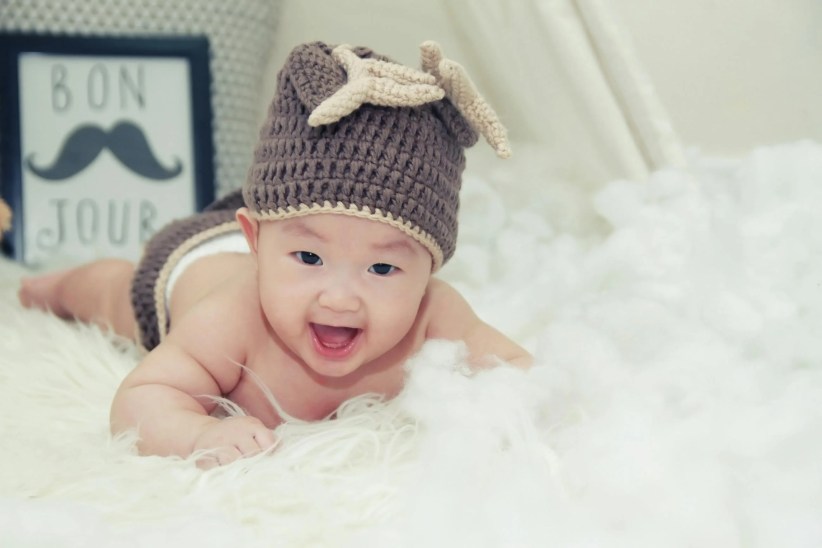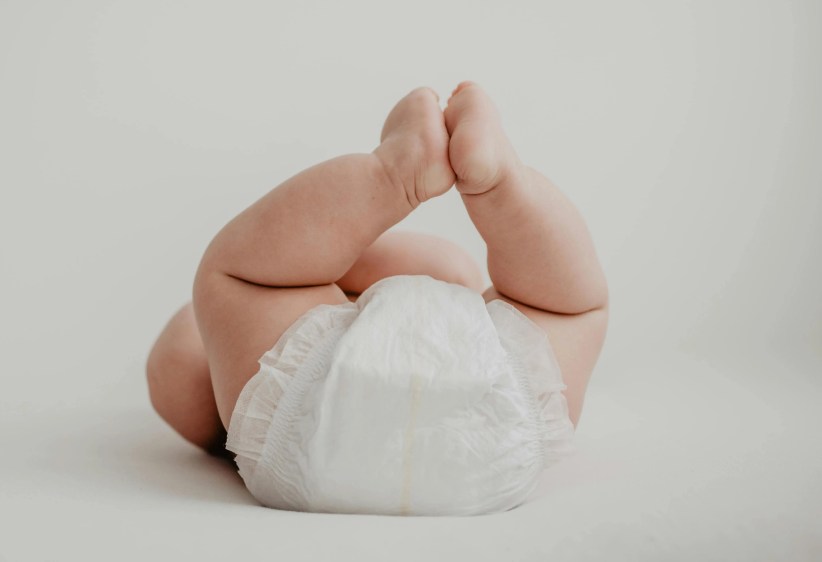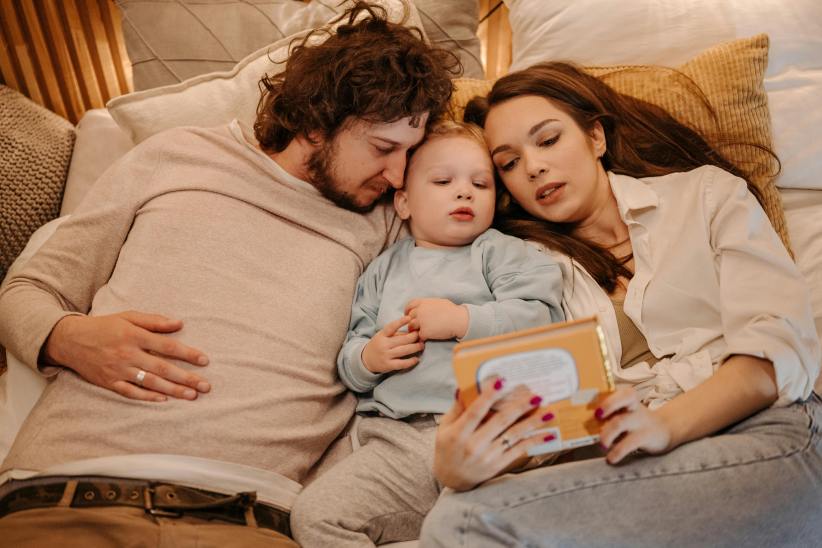 Heavenly. Hellish. Like tripping on acid. How would you describe your childbirth experience? In Babble’s new Parenting, Uncensored: Straight Talk From Real Moms On Giving Birth, the true tales of labor and delivery are as varied as they are insightful. The fourth collection of essays in the parenting empire’s ebook series (the first three tackle breastfeeding, getting pregnant, and the actual experience of pregnancy), this edition of Parenting, Uncensored reveals just how amazing and overwhelming—not to mention, complicated—giving birth can be.
Heavenly. Hellish. Like tripping on acid. How would you describe your childbirth experience? In Babble’s new Parenting, Uncensored: Straight Talk From Real Moms On Giving Birth, the true tales of labor and delivery are as varied as they are insightful. The fourth collection of essays in the parenting empire’s ebook series (the first three tackle breastfeeding, getting pregnant, and the actual experience of pregnancy), this edition of Parenting, Uncensored reveals just how amazing and overwhelming—not to mention, complicated—giving birth can be.
To get the story behind the new compilation, we spoke with Babble Editor in Chief Catherine Connors about parenting in the social media age, childbirth as comedy, and sharing such deeply personal life events.
1. How did you go about the selecting the 12 personal essays for the book?
It was a combination of reaching out to look at what the community identified as the most resonant pieces on the relevant topics… For each of the topics, I had at least three or four essays in mind of pieces that had saved my life and [others] that had been really powerful in the community more broadly over the past number of years. We sat down as an editorial team to review everything and see what would make the final cut.
2. The essays really run the gamut from women who loved their childbirth experience to those who hated every excruciating moment. Do you have any favorites from this collection?
I mean, it’s like picking a favorite child! It was really important, to me, with this broader project overall and particularly with this issue, of putting out the diversity of experiences, so that we could get at the truth of getting pregnant and having babies is way more complicated than what you historically see in traditional parenting magazines and even in your standard baby books. It can be very difficult; it can be very painful; it can be very easy. So much of the conversation around these experiences tends to reduce it to commonalities. And it was really important to me, personally, as someone who’s been through the experience, to have a clearer sense of what women really truly went through, rather than the glossed over, overly edited version of those stories.
3. In your introduction to the book, you write that the more women learn, the more confident they become in their ability to give birth. Do you think that reading personal essays can be as enlightening or as useful as reading more clinical reports?
They bring it home in a personal way that the clinical view just can’t. When I had my first child, I went into it just assuming that I’d have control over everything. I had a birth plan; I had a labor doula; I had all the best intentions of going without painkillers and going natural for as long as I could. I had all these expectations and plans for the birth that, of course, didn’t play out the way I had hoped. I wish I had known.
Different moms have different feelings about this. Some don’t want to know any of the scary stories before they go through birth themselves. It’s fine for them to have those stories after the fact. But I really wish that I had known at the time!
I’ve been thinking a lot about this especially with Kate Middleton’s birth and delivery and all of the narrative around her going for a natural birth. There are so many different ways that childbirth can play out; there are so many different ways that getting pregnant can play out; there are so many different ways that life with newborns can play out. So having a keen sense of the diversity and range of experiences would have better prepared me for the mutability of my own experience.
4. Is there something about the experience of giving birth that compels women to write about it? Each of the essays is dripping with such personal detail that the reader really gets to know the writer in a matter of sentences. What’s that kind of sharing experience like for the writer?
I’m actually surprised that more women don’t write about the experience of pregnancy and childbirth because it’s such a transformative experience. One of the reasons why I think we live in such an interesting time is that we now have these public platforms for sharing these stories. I think, anecdotally, that most moms have had the experience of sitting down with a group of other women and sharing pregnancy stories and birth stories because they are so deeply personal and because they do transform us as women. For me, as a writer, it was a very powerful for me to write through and around and process the experience of pregnancy and childbirth because I wasn’t prepared for how radically it would transform me. That experience of going from a cerebral being to a very physical being, is a very strange one—and it’s one that I think we’re better able to come to terms with when we talk about it and share it with others.
5. Are women sharing their childbirth experiences nowadays more than ever before? Did generations before the Internet, blogging, and social media share their stories with each other as much? Has it just become a more public discussion?
It’s absolutely become a more public discussion. Both conversations have been had for millennia, but they were historically private conversations. I had a previous life as an academic studying the public and the private sphere in the context of motherhood and the family. Motherhood and the family, up until relatively recently in world history, were entirely private endeavors. Stories about the family were told by men in the abstract. Mothers didn’t tell their own stories about the condition and experience of motherhood. They certainly sat around the hearth and talked about it…but those were always private conversations. Now, for the first time in human history, almost every woman has access to a public platform to share her story. It really brings us into a community of motherhood that’s unprecedented.
6. It’s definitely it’s own kind of village, so to speak. You can immediately connect with people who have been through what you’re going through—whereas the traditional village that it takes to raise a child is comprised of different generations.
We think very romantically of the traditional village, the community of women and mothers supporting each other. But every mother has a different experience and if you happen to struggle with postpartum depression, as I did, or difficulty breastfeeding or you have a special needs child, if you lived in a traditional community there might not be another woman who shares your exact experience. But in this more global, storytelling community, you can find those other women.
7. The topic of pregnancy takes up so much residence in popular culture and media, just thinking of movies like “Knocked Up,” “Baby Mama,” and “What To Expect When You’re Expecting.” They’re trying to make pregnancy comedy. How do you feel about that?
I have a very mixed response. On the one hand, I like seeing pregnancy and childbirth as part of the pop cultural discourse. I like to see it portrayed and talked about, and even laughed at. I think that in some ways, one of the reasons why we laugh at things like that is a way of distancing ourselves from it. Pregnancy is funny because it’s sort of absurd, right? Which I think points us in some difficult or challenged ways of looking at it. Obviously, most pregnant women have their moments of feeling absurd and certainly there’s a lot of absurdity to childbirth but it’s also a very deep and meaningful experience. You either see pregnancy and childbirth in the most extreme, dire, by-the-side-of-the-road, dramatic portrayals or you see it as complete absurdity, like it’s comedy, slapstick. There aren’t a lot of portrayals in popular culture that really normalize it…with the mix of comedy and horror and meaning that’s all tied up in it.
8. It seems there are very few essays of this nature written by dads. Why do you think that might be the case? Shouldn’t we be interested in their perspective, too?
I think dads are still in a kind of weird place with parenthood. Things have changed so dramatically even just in the last ten years. The whole idea of the empowered dad is a much more robust one now. But, even so, for many dads, childbirth is still a foreign experience and something that they can’t participate in directly. It’s an experience that’s shut off to them… I would love to see more stories from dads about the meaty, messy elements of childbirth and all the stuff that goes on around that. But I still think it’s still tricky territory for dads because it’s not their own experience.
9. What’s the best labor advice you received before giving birth to your own two children, Emilia and Jasper?
In terms of giving birth, I didn’t really get advice with Emilia, and that’s why I was so desperate for a community of other moms once I had gone through the process. I discovered mom blogs about four weeks after my daughter was born in a fit of desperation looking for counter narratives because I felt completely isolated and alone. My sister had kids, one of my best friends had kids, but they spoke in generalities.
Jasper was a much more difficult birth than Emilia; I had much more intense postpartum depression; everything was more difficult with him in many respects. But I felt more prepared for it, not just because he was my second, but because at that point I was two and a half years into the world of real-mom storytelling… I was familiar with the range of experiences and all the ways in which women make it through. I was able to weather the difficulties around Jasper much more easily.
10. What do you consider to be the biggest misconceptions about giving birth?
I don’t know if you could quite characterize it as a misconception, but the one that I experienced before Emilia is the idea that women have much more control over the experience than they actually do—the idea that you can manage your pregnancy and your birth. It’s great to plan and to have preferences, but there’s so much that’s out of our control.
Whitney C. Harris is the executive editor of New York Family.





















